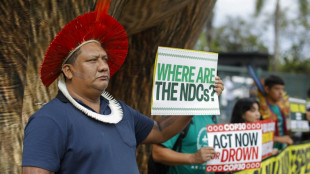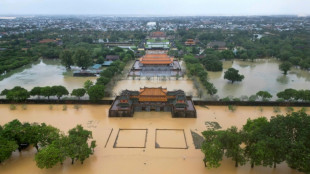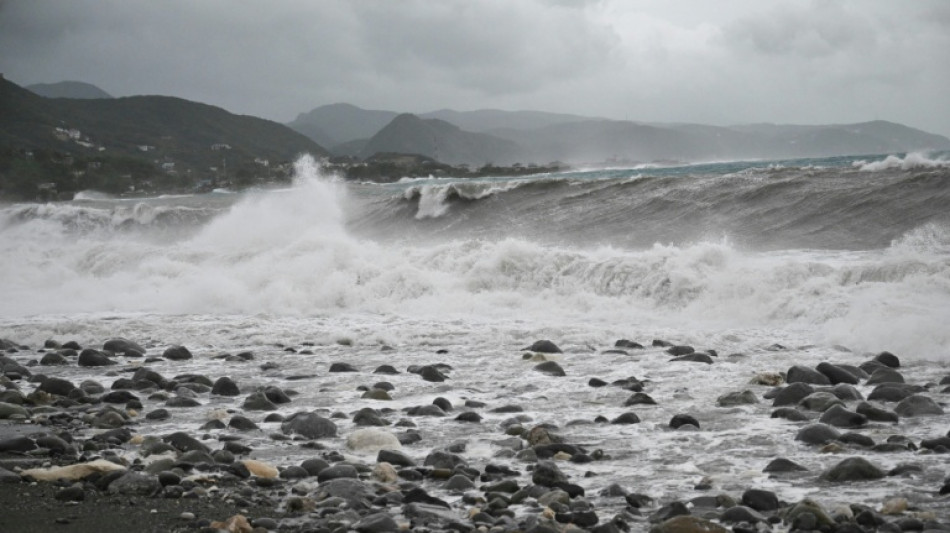
-
 Mercedes-Benz profit plunges on China slump and US tariffs
Mercedes-Benz profit plunges on China slump and US tariffs
-
South Korea gifts Trump replica of ancient golden crown

-
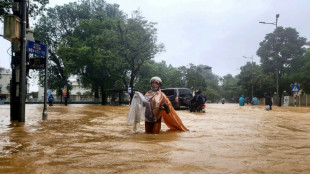 Record Vietnam rains kill four and flood 100,000 homes
Record Vietnam rains kill four and flood 100,000 homes
-
Norway's energy giant Equinor falls into loss
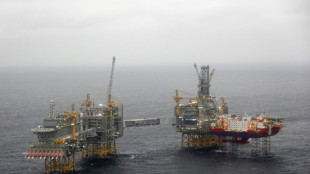
-
 Asia stocks join Wall Street records as tech bull run quickens
Asia stocks join Wall Street records as tech bull run quickens
-
New Zealand hammer reckless England despite Archer's brilliance

-
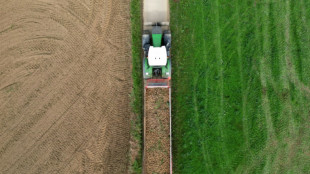 Record potato harvest is no boon in fries-mad Belgium
Record potato harvest is no boon in fries-mad Belgium
-
Deutsche Bank posts record profit on strong trading

-
 UBS beats expectations as claws backs provisions
UBS beats expectations as claws backs provisions
-
German neo-Nazi rappers push hate speech, disinfo on TikTok

-
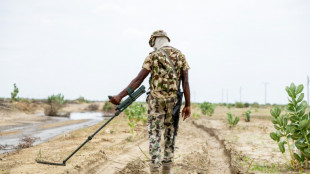 US aid flows to Nigeria anti-landmine efforts - for now
US aid flows to Nigeria anti-landmine efforts - for now
-
Low turnout as Tanzania votes without an opposition
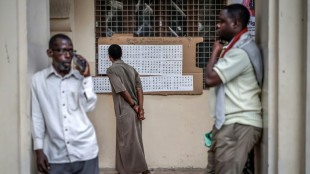
-
 Monarch-loving Trump gifted golden crown once worn by South Korean kings
Monarch-loving Trump gifted golden crown once worn by South Korean kings
-
Dutch vote in test for Europe's far right

-
 Fugitive ex-PM says Bangladesh vote risks deepening divide
Fugitive ex-PM says Bangladesh vote risks deepening divide
-
On board the Cold War-style sealed train from Moscow to Kaliningrad
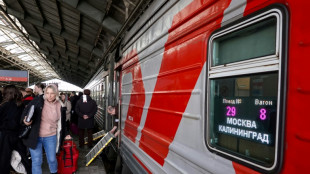
-
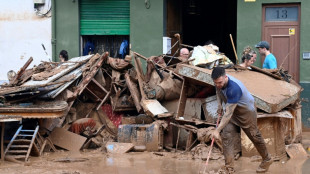 Spain to hold memorial on first anniversary of deadly floods
Spain to hold memorial on first anniversary of deadly floods
-
Trump said 'not allowed' to run for third term, 'too bad'

-
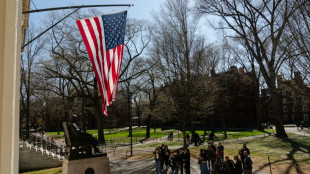 Unruffled by Trump, Chinese parents chase 'American dream' for kids
Unruffled by Trump, Chinese parents chase 'American dream' for kids
-
Australian police design AI tool to decipher predators' Gen Z slang

-
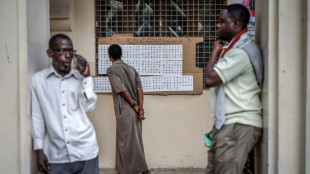 Tanzania polls open with opposition excluded
Tanzania polls open with opposition excluded
-
Reckless England set New Zealand 176 to win second ODI

-
 Tanzania votes but with opposition excluded
Tanzania votes but with opposition excluded
-
Coach defends handing Australia captaincy back to Sam Kerr

-
 Thunder, 76ers remain unbeaten with NBA comeback wins
Thunder, 76ers remain unbeaten with NBA comeback wins
-
France expected to adopt consent-based rape law

-
 Blue Jays swat Dodgers 6-2, level World Series
Blue Jays swat Dodgers 6-2, level World Series
-
Australia's Cummins makes tentative bowling return

-
 Veni, vidi, whoopsie: Australian schools make Caesar exam blunder
Veni, vidi, whoopsie: Australian schools make Caesar exam blunder
-
With 100 days to go, Milan Winter Olympics chiefs 'can see finish line'

-
 Pakistan says peace talks with Afghanistan 'failed'
Pakistan says peace talks with Afghanistan 'failed'
-
NZ raids shipping insurer over alleged sanctions busting
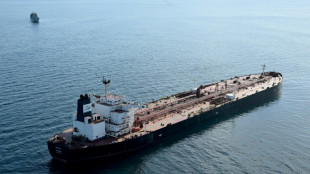
-
 Resilient young woman leads fight for euthanasia in Mexico
Resilient young woman leads fight for euthanasia in Mexico
-
'Dangerous Liaisons' gets MeToo twist in prequel 'The Seduction'

-
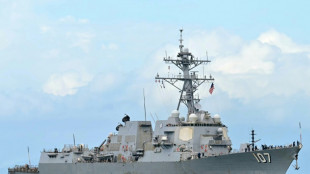 As US blows up drug boats, Venezuelan oil sets sail
As US blows up drug boats, Venezuelan oil sets sail
-
US Fed on track to cut rates again in penultimate decision of 2025
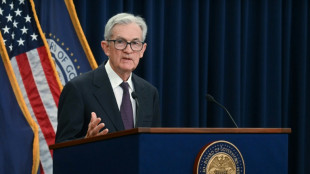
-
 North Korea announces missile test hours before Trump due in South
North Korea announces missile test hours before Trump due in South
-
'Arrested for singing': Russia's case against teen busker stirs anger

-
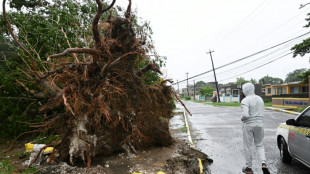 Hurricane Melissa takes aim at Cuba after roaring across Jamaica
Hurricane Melissa takes aim at Cuba after roaring across Jamaica
-
Ecological Threat Report 2025: Extreme Wet-Dry Seasons Emerge as Critical Conflict Catalyst

-
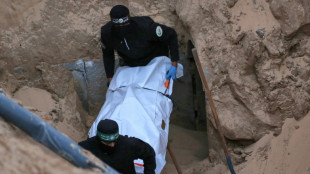 Israel launches air strikes on Gaza, says Hamas attacked troops
Israel launches air strikes on Gaza, says Hamas attacked troops
-
Injured Springer out of World Series game four

-
 'No-feeling' Alcaraz eliminated from Paris Masters
'No-feeling' Alcaraz eliminated from Paris Masters
-
Favorite Sovereignty could miss Breeders' Cup Classic after fever

-
 Microsoft holds 27% of OpenAI in revamped partnership
Microsoft holds 27% of OpenAI in revamped partnership
-
Bronze nets birthday goal as England's women beat Australia

-
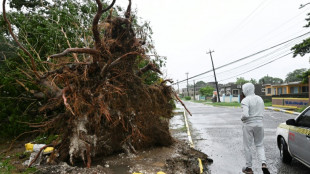 'Catastrophic' hurricane slams Jamaica with fierce winds and rain
'Catastrophic' hurricane slams Jamaica with fierce winds and rain
-
Cameroon blames post-vote deaths on opposition leader
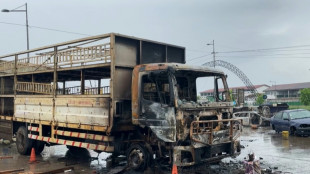
-
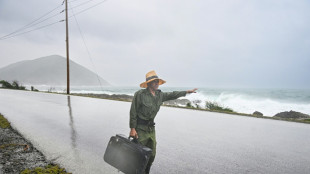 Cubans flee the coast as Hurricane Melissa looms
Cubans flee the coast as Hurricane Melissa looms
-
Trump heads to South Korea with all eyes on Xi meeting


Slow but savage: Why hurricanes like Melissa are becoming more common
Fueled by abnormally warm Caribbean waters, Hurricane Melissa exploded into a Category 5 cyclone while moving at little more than a strolling pace -- a dangerous mix that could amplify its impacts through relentless rain, storm surge and wind.
Scientists say both rapid intensification and stalling storms are on the rise in a warming climate. Here's what to know.
- Supercharged by climate change -
Melissa jumped from a tropical storm with 70 mph (110 kph) winds on Saturday morning to a 140 mph Category 4 within 24 hours. It's since strengthened further into a Category 5, the highest level on the Saffir-Simpson, where even well-built structures face catastrophic damage.
It was the fourth of five Atlantic hurricanes this season to intensify in such dramatic fashion.
"We haven't had that many hurricanes in the Atlantic this season, but an unusual proportion of them went through a phase of intensifying quite rapidly," meteorologist and climate scientist Kerry Emanuel of MIT told AFP.
While it's hard to read the fingerprints of human-caused climate change into individual events, scientists are more confident when it comes to trends. "This may very well be collectively a signature of climate change," he said.
Warmer sea surface temperatures injects more energy into storms, giving them extra fuel. But the relationship is nuanced: it's actually the temperature difference between the water and the atmosphere that sets a hurricane's potential strength, a concept Emanuel pioneered.
"There's this atmospheric warming that tends to reduce the intensity, and there's sea surface temperature warming, which tends to increase the intensity," atmospheric scientist Daniel Gilford of nonprofit Climate Central told AFP. "Generally speaking...we find that the sea surface temperature wins out."
Melissa passed over waters made 1.4C (2.5F) warmer due to climate change, Climate Central's rapid analysis said -- temperatures that were at least 500 times more likely due to human-caused warming.
- 'A terrifying situation' -
Warmer oceans also mean wetter storms. "We expect something like between 25-50 percent extra rainfall in a storm like Melissa because of human-caused climate change," said Gilford.
Compounding matters further is the storm's slow crawl -- currently three miles per hour. Melissa is projected to dump 20-25 inches of rainfall to parts of Jamaica.
"It's this repetitive or continuous threat and existence in a dangerous situation," Jill Trepanier, a hurricane climatology expert at Louisiana State University, told AFP.
"It could be a prolonged surge. It could be high level rainfall over a longer period of time, and your watershed can't handle it. It could be extreme wind speed over an extended period of time, and most infrastructure can't handle that. It could be a combination of all three."
Trepanier authored a research paper last year on the subject of so-called stalling storms, finding that such events in the Caribbean typically happen in October, near coastlines.
Normally stalling storms tend to be dying out, as they pull up cold water from the depths of the ocean and are exposed to wavy, up-and-down winds in the atmosphere tearing them apart.
What makes Melissa unusual is that it stalled and intensified in the same spot -- a sign that the water was so warm, and the warmth ran so deep, it avoided the usual self-destructing effect.
"It's a bit of a terrifying situation," said Trepanier.
Former NOAA climatologist James Kossin, who has published several papers on the subject, said data clearly show that stalling storms are on the rise.
A possible driver is "Arctic amplification" -- global warming reduces the temperature difference from the planet's low to high latitudes, weakening the winds that normally steer storms "like a cork in stream." But more research is needed to confirm a causal link, he said.
Trepanier added that understanding the human and ecological dimensions is just as important as the physics because humans respond differently to risk.
With Jamaica's mountainous terrain, torrential rainfall could trigger landslides, while heavy damage to hotel infrastructure could batter the tourism-dependent economy for years, she warned.
L.Stucki--VB

